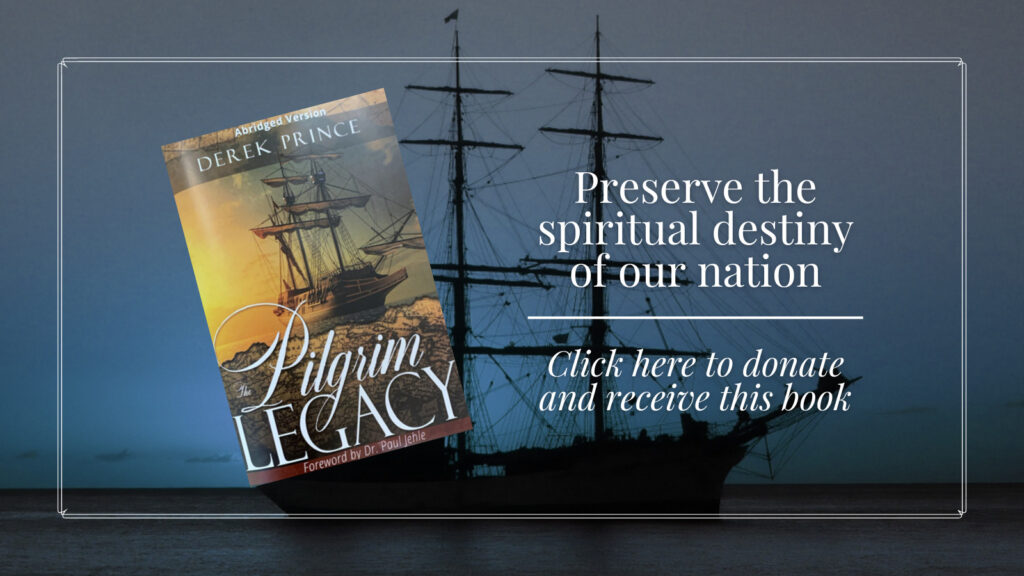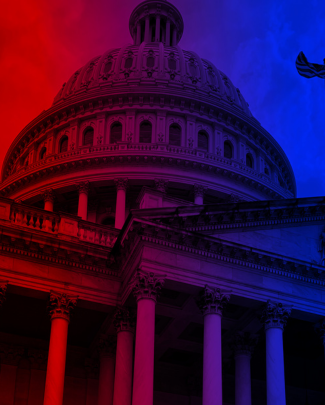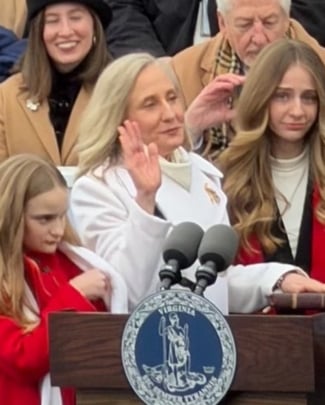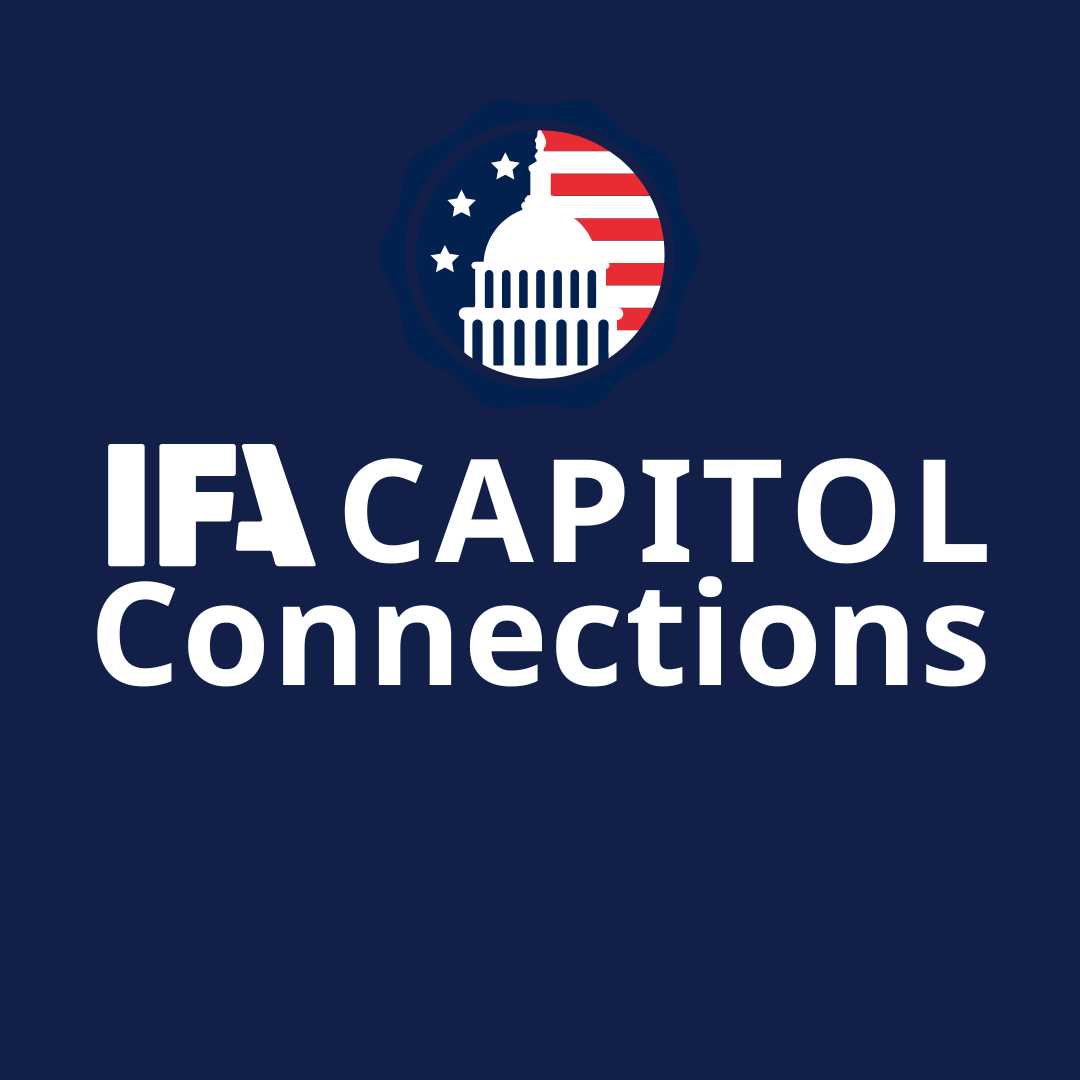A Tale of Two Cities: Jamestown, Plymouth, and the American Way
A Tale of Two Cities: Jamestown, Plymouth, and the American Way
Our nation began with two cities. One was founded on the Bible, while the other was founded on worldly principles. Today, let’s make sure that we are are eating from the right tree, as the Pilgrims did.
From WallBuilders. By the time it’s all said and done, very few years have been as momentous as 2020. Between pandemics, riots, elections, and more, it might be easy to forget the path that has led America to the position she finds herself in today. As our historical memory evaporates in a world of instant information many will find it a surprise that 2020 also gave us one of the best reasons to celebrate as Americans as the 400th anniversary of the Pilgrims landing upon our shores.
Have you taken your place on the wall?
This small band of religious dissidents hardly strike us as the heroes of a grand historical epic stretching across four centuries, thousands of miles, and millions of people, but it is no exaggeration to say that their courageous voyage fundamentally altered the direction of the world. The diminutive beginnings at Plymouth Rock represent the proverbial mustard seed that would eventually grow into a mighty tree of liberty.
The Pilgrim story is one of faith through hardship, and endurance through persecution. They were the first to risk their “lives, fortunes, and sacred honor” for the establishment of freedom on American shores.[i] Due to their religious beliefs differing from the state-mandated doctrines set by the King, they were persecuted and oppressed. William Bradford, the future governor of Plymouth, explained how, “some were taken and clapped up in prison, others had their houses beset and watched night and day, and hardly escaped their hands.”[ii]
After years of harassment, this congregation of pious dissenters was eventually chased out of England by the authoritarian King James in 1607, fleeing to the city of Leiden, Holland, for twelve years. Even though they no longer lived in England they still felt called to minister to their countrymen, so Pilgrim leader William Brewster began clandestinely printing religious books which would then be smuggled back into England. Needless to say, their contraband writing and “illegal” speech infuriated the King and officials in the Church of England. Although in the entirely different country of Holland, they still were not free from the King of England’s reach and he sent out agents to uncover who was responsible for these “dangerous” opinions.[iii]
Upon discovering the press of William Brewster in Leiden, King James began to pressure the governing authorities to crack down on the Pilgrim enclave. Seeing the precariousness of their situation, the Pilgrims sent a delegation to England to attempt to reach a sort of compromise in which they would travel to America in exchange for their religious freedom. Miraculously they secured an agreement which provided a place for them to practice their beliefs without interference from the King although in return they had to give fifty-percent of their earning to the crown.[iv]
With this plan the Pilgrims had to chart a new course through dangerous waters. Some decided to stay behind and others could not come. Then one of their boats was unable to make the trip—possibly due to sabotage—so even more were kept from the pilgrimage. By the time the Mayflower, now alone, carried its collection of Pilgrims and Strangers (the name given to the other colonists who weren’t a part of the dissenters) only 104 souls embarked from the shores of the Old World.[v] As Alexis de Tocqueville described so well in his monumental work, Democracy in America, the Pilgrims sought, “a land so barbarous and so abandoned by the world that they might yet be permitted to live there in their manner and pray to God in freedom.”[vi]
Over the next year, from the voyage to the First Thanksgiving, the Pilgrims suffered from innumerable hardships which steadily killed many of the men, women, and children. So dire were their circumstances and so devastating the results that when they eventually celebrated the first successful harvest with their Native allies the following year, hardly 50 Pilgrims had survived.[vii] The fact that any of them survived is itself remarkable, but when placed within the context of the New World it becomes undeniably miraculous.
Prior to the discovery of the New World by Christopher Columbus the Native Americans largely lived in a state of nearly continual and bloody conflict. Tribe against tribe, nation against nation, the Indians waged war over resources, land, and honor. Cannibalism, slavery, and human sacrifice were unfortunately common.[viii] Agricultural learning was still in its early stages of development and technologically they were centuries behind Europe when the two civilizations met. Indeed, the natives lacked items such as gunpowder, ocean-fairing vessels, or even wheeled transportation. There was no such thing as the peaceful and tranquil “noble savage.” The Native Americans were very much people—undeniably flawed, and in every way in as much need of the redeeming sacrifice of Christ as everyone else.
It was on this land that the hardy Pilgrims—outcasts from their homeland and fugitives from tyrants—set their hopes. Their vision was twofold. On the one hand they hoped to carve out a home for themselves and their children where they could worship God in their own way instead of having their religious beliefs dictated to them by the King. On the other hand, the Pilgrims sincerely wished to bring the hope of Christianity to the native people.[ix] The Mayflower Compact explained that all that they had sacrificed, all they had suffered, and all they had risked was for “the glory of God, and advancement of the Christian faith.”[x]
These goals caused the Pilgrims to make many developments and advancements in the fields of government, education, religious freedom, human rights, and political liberty. When it came to relations with the surrounding Native American tribes, the Pilgrim’s Christian foundation enabled them to forge the longest lasting peace treaty in early American history and successfully begin evangelism efforts.[xi] Taking the Bible as the guide book to every major facet of life—a map to creation authored by the Creator—the Pilgrims instituted the free market, the institutional independence of the church from the dictates of the government, stronger protections for private property, and public education.[xii] In 1641 they also passed possibly the first anti-slavery law on the continent making “man-stealing” a capital offence.[xiii]
In fact, when a slave ship came to them in 1646, the Pilgrims prosecuted the slavers and liberated the slaves.[xiv] Although far from perfect—for all have fallen short and sinned (see Romans 3:23)—those early beginnings of anti-slavery sentiment eventually led to the New England area being the first places in the modern world to abolish slavery, with Massachusetts specifically ending the institution in 1783—a full 50 years before England, which was the first independent nation to abolish slavery.[xv]
However, the Pilgrims were not the only people to colonize the New World. As Tocqueville noted, America contains, “two principal offshoots that, up to the present, have grown without being entirely confused—one in the South, the other in the North.”[xvi] In 1607 a group of merchants and traders had occupied land given to them in the New World by the King of England founding the colony of Jamestown, Virginia. Having different motivations, desires, and hopes, the colonists of Jamestown acted dramatically differently from the later Pilgrims.
Instead of coming for religious freedom, the Jamestown colonists largely came as agents of the King for the purpose of economic profit and trade. Thus, slavery was introduced early into Jamestown and protected by their legal codes. Their relations with the native tribes was markedly more contentious, tragic, and warlike. The lack of a Biblical structure and spiritual motivations created a vastly different environment.
From these two seeds sprouted two rival trees which both sought to dominate the fertile land that eventually became the United States. From Jamestown the crooked and perverse Tree of Slavery began to creep across the young country. From Plymouth, however, a different sort of plant took root. Based upon their dedication to the Bible, the Tree of Liberty first budded in the fields plowed by the Pilgrims. As the Scriptures say, “a tree is known by its fruit,” (Matthew 12:33), and the product of Jamestown and Plymouth differ drastically from one another.
This map from 1888 perfectly illustrates this duality in the American identity—a tale of two cities. The map was created only a generation after the Civil War, which itself was but the cataclysmic struggle between the heirs of the differing philosophies of Jamestown and Plymouth. Designed to teach their children about the history behind the war, it traces the heritage for the South back to Jamestown and the North to Plymouth. Going further, the map highlights the fundamental difference between purpose of founding each colony. While Jamestown was established for mammon [worldly riches], Plymouth was planted upon the Bible.
From these two very different places, two trees sprouted and stretched across the country. From Jamestown grew the Tree of Slavery, whose poisoned branches produce pain, suffering, and evil. The fruit of slavery include: avarice, lust, ignorance, superstition, sedition, secession, treason, and rebellion. All who eat from this tree unrepentant are warned that their ultimate destination will surely be Hell.
The other seed, the one planted in Plymouth, leads to a much different kind of banquet. The Tree of Liberty produces: free schools, intelligence, knowledge, obedience to law, free speech, equal rights, contentment, love of country, industry, philanthropy, sobriety, benevolence, morality, happiness, justice, patience, virtue, charity, truth, faith, honor, hope, peace, joy, and light. Eventually take those who partake of this tree will at least have the taste of immortality, for such things all sprout from the fountainhead of Christ.
Today Americans find themselves upon a ship beset and besieged on all sides by turbulent storms and crashing waves. The ones who built this boat, the Founding Fathers, made it sturdy and with great wisdom, but it is up to us to decide where we will put ashore—and into which city will we disembark. Will it be Jamestown or Plymouth? Which tree will we take the fruit from?
There are many today who mistake the Tree of Slavery for one of security. There are serpents which crawl around deceiving many with high sounding nonsense. “Surely you will not die!” (Genesis 3:4). But death will be the least of our concerns if we chose that path. The sad and tragic histories of Germany, Russia, Venezuela, and more bear ample witness to what happens when nations eat of the fruit of slavery and oppression. We must not be similarly deceived.
We must once again set a course towards the Tree of Liberty. It is undoubtedly the more difficult of the two paths. The voyage to this New Plymouth may be dangerous, we may be beset by innumerable hardships, and there is no guarantee that we all will make it through that first perilous winter—but freedom is irreplaceable. It is only in a state of liberty that humanity can make good the assertion that “all men are created equal and endowed by their Creator with certain inalienable rights.”[xvii]
On the 400th Anniversary of our Pilgrim forefathers planting this small seed of freedom in a world of tyranny and oppression, let us “combine and covenant ourselves together”[xviii] once again in order to turn their tree into an orchard so that all may partake in this feast of liberty. If we work diligently, the harvest will allow us to finally join together in a new day of genuine and heartfelt Thanksgiving just like those pious heroes did some four centuries ago.
What did you think of this article? Share your thoughts and prayers below.
(Used with permission. From WallBuilders. Photo Credit: Photo by Lindsay on Unsplash)
Partner with Us
Intercessors for America is the trusted resource for millions of people across the United States committed to praying for our nation. If you have benefited from IFA's resources and community, please consider joining us as a monthly support partner. As a 501(c)3 organization, it's through your support that all this possible.


We use cookies to ensure that we give you the best experience on our website. If you continue to use this site we will assume that you are happy with it. Privacy Policy





Comments
I had no idea about this history of these two cities, – although I will confess that my awareness of our country’s early history does have holes in it ..much more than there should be.
Lord, let this Tale of Two cities.. ring true and loudly.. in the hearts of many -,that the Legacy following your pathway.. Lord -,will be the historical and Godly example it was always meant to be’,to bring people to a bountiful existence on the pathway of your righteousness.
In Jesus Name, Amen
Wow! Thank you Wallbuilders for that amazing historical and profound essay of our nation’s roots. I want to pass that on to every family member and all my neighbors too! We are so blessed as a nation. May God help us to keep freedom!
Thank you for this article. A good history lesson which I am afraid is not taught in the schools! Father God, we ask that this history be read by many and give us a desisre to be like the Pilgrims in thier living for you.
Thank you Lord God for the early settlers the pilgrims for their sacrifice.. thank you Lord God for your liberty that you have given to us that we may live according to your word may live according to your and we praise you and give you thanks and all glory to God… Amen